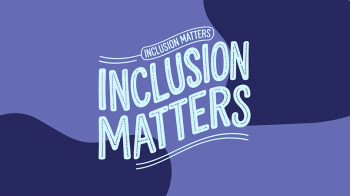Delving into the complexities of Ukrainian language grammar on the internet forms an essential part of language understanding. This is a critical component in determining how words transform according to their function in a sentence and their grammatical case. Grammatical cases act as indicators that reflect a word's syntactic role within a sentence's structure. Ukrainian is known for its array of seven distinct cases, each defined by its own set of rules governing word changes. These seven cases in the Ukrainian language include the genitive, accusative, dative, instrumental, vocative, and nominative cases, each having its distinct rules for declension and practical usage.

Non-compliance with the rules of declension in Ukrainian
Despite the well-established principles of declension, Ukrainian language learners often encounter numerous exceptional cases that can prove challenging. Nonetheless, mastering these unique circumstances is an essential component of using cases correctly. These irregular instances in declension can be rather enigmatic, involving words or phrases that deviate from the typical patterns or fail to adhere to the general rules. Proficiency in comprehending and applying these anomalies is of utmost significance for linguistic competence.
These exceptions can manifest in various ways within declension, encompassing alterations in word endings, adjustments to word forms, or even breaches of sentence syntactic structures. They may pertain to a single case or simultaneously impact multiple cases. Instances of such irregularities may include incorrect noun, numeral, or adjective declensions, unconventional pronoun forms, and other grammatical abnormalities.
Cases in Ukrainian declension and their function
The Ukrainian language places considerable emphasis on the role of cases within its grammar. Each case is responsible for defining the precise syntactic function of a word within a sentence. Grasping the functionality of each case and the ability to correctly inflect words in alignment with their syntactic roles significantly contributes to crafting accurate and easily comprehensible texts. The evolution of declension rules, encompassing any exceptions, represents a pivotal phase in the study of the Ukrainian language, enhancing linguistic proficiency.
Here's a concise overview of the seven Ukrainian cases:
- The Nominative Case – designates the subject or object of an action.
- The Genitive Case – signifies a direct complement within the sentence.
- The Dative Case – conveys the purpose or recipient of an action.
- The Possessive Case – identifies ownership or origin.
- The Instrumental Case – characterizes the tools employed for an action.
- The Vocative Case – specifies the location of the action.
- The Vocative Case – comes into play when addressing the addressee or expressing exclamations.
Tips and rules for the effective development of declension in the Ukrainian language
To achieve proficiency in the declension of numerals, a systematic and dedicated approach is paramount. Delving into declension tables, utilizing online resources, and engaging in regular communication in Ukrainian can pave the way for substantial progress in mastering this vital aspect of grammar. Although declension may appear daunting initially, persistence and the right strategy can empower you to wield this grammatical feature of the Ukrainian language with finesse.
Here are some practical suggestions to aid your journey:
- create declension tables for nouns, adjectives, and numerals, simplifying the memorization of rules;
- construct sentences employing words in different cases, as practice fortifies your skills;
- seek the guidance of Ukrainian language tutors specialized in declension;
- if the opportunity arises, converse in Ukrainian to gain practical experience in real-life declension scenarios;
- consequently, mastering case declension in Ukrainian is pivotal, dictating how words transform based on their role within sentences. Familiarity with fundamental declension rules, alongside knowledge of exceptions, will empower you to articulate and compose Ukrainian with competence and fluency.

Moreover, it's important to acknowledge that declension in the Ukrainian language is extensive and diverse. Words can undergo significant changes contingent on their gender, number, case, and even spelling peculiarities. While this may initially appear challenging, consistent practice and patience will enable you to conquer this vital aspect of the language.
To those just starting their Ukrainian language learning journey, it is strongly recommended to dedicate significant attention to understanding declension and memorizing case endings. This approach is essential to prevent errors in spoken and written communication. Additionally, practicing by reading Ukrainian texts and constructing sentences while adhering to declension rules can prove to be highly beneficial activities.
Achieving mastery in declension within the Ukrainian language will undoubtedly elevate your linguistic skills and boost your confidence when communicating in this culturally rich and vibrant language.



-preview.png)